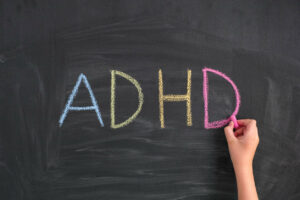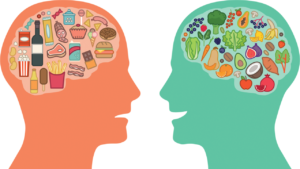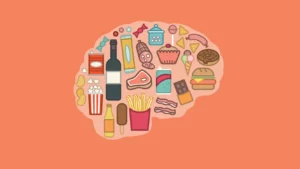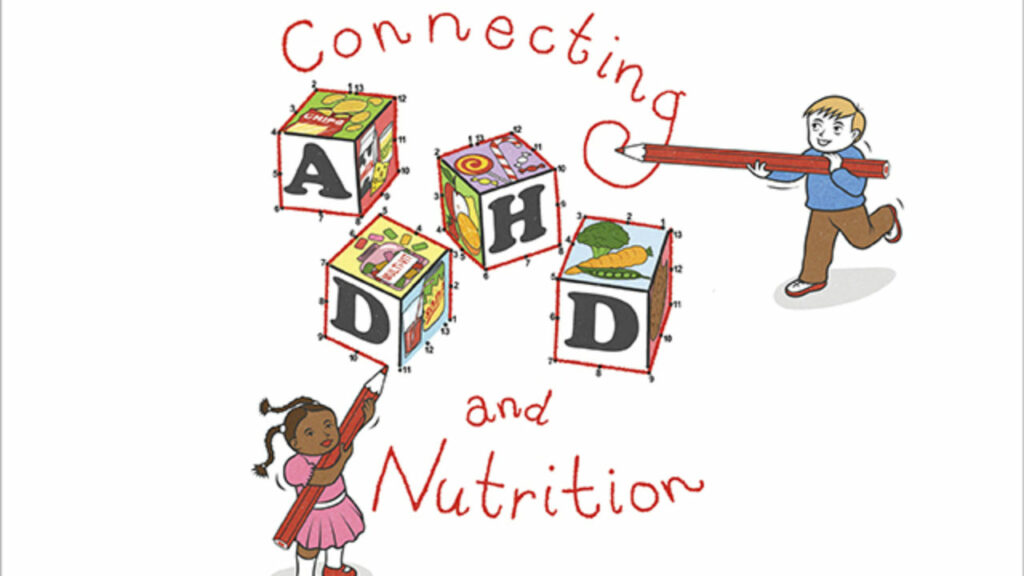Attention Deficit Hyperactivity Disorder (ADHD) is a condition that affects many people around the world. Symptoms can include difficulty focusing, hyperactivity, and impulsiveness. While there is no one-size-fits-all cure for ADHD, evidence suggests that nutrition may play a role in managing the symptoms. In this blog post, we will discuss how to improve focus and attention with food!
Contents
What Is ADHD?

Attention Deficit Hyperactivity Disorder (ADHD) is a mental disorder that characterizes by problems with focus, hyperactivity, and impulsiveness. ADHD can affect people of all ages, but it is most commonly diagnosed in children. According to research, about 11% of children aged 4 to 17 have been diagnosed with ADHD.
Symptoms of ADHD can vary from person to person. Some people with ADHD may only have problems with one symptom, while others may have all three. symptoms of ADHD can also change over time. People may have difficulty paying attention or focusing on tasks. They may appear to be daydreaming or not listening when someone is talking to them. They may seem very active and always on the go, have difficulty sitting still for long periods, and may talk excessively.
How Does Nutrition Affect ADHD?
While poor nutrition isn’t the root cause of ADHD, what we eat does affect how our bodies and minds function day-to-day.
There is no one-size-fits-all cure for ADHD, nutrition may play a role in managing the symptoms. A healthy diet can help to improve focus and attention, as well as reduce hyperactivity and impulsiveness.
Certain nutrients are essential for people with ADHD, including omega-three fatty acids, iron, magnesium, zinc, and vitamins B12 and D. These nutrients can be found in a variety of foods, so it’s important to eat a well-rounded diet. In general, you should aim to eat plenty of fruits, vegetables, whole grains, lean protein, and healthy fats. You should also limit processed foods, sugary drinks, and artificial additives.
There is no single nutritional approach that is effective for all people with ADHD. However, some research suggests that certain nutrients may be beneficial for people with this condition. For example, omega-three fatty acids are essential for brain health and function. Other nutrients have been studied for their potential role in managing ADHD. However, more research is needed to understand how these nutrients may affect ADHD symptoms.
What Is the Best Diet For ADHD?

While there is no one-size-fits-all diet for people with ADHD, some evidence suggests that certain dietary approaches may be beneficial.
Elimination Diet
An elimination diet is a type of dietary intervention that involves removing certain foods from the diet to see if they are causing problems. Elimination diets are often used to identify food allergies or sensitivities. Some people with ADHD may benefit from an elimination diet, as certain foods may worsen symptoms. A 2006 study found that children with ADHD who followed an elimination diet showed improvements in symptoms, including hyperactivity and impulsivity, compared to those who did not follow the diet.
Mediterranean Diet
The Mediterranean diet is a style of eating that is based on the traditional foods of countries around the Mediterranean Sea. This diet includes plenty of fruits, vegetables, whole grains, fish, and olive oil. Some research suggests that the Mediterranean diet may be beneficial for people with ADHD. A small study from 2016 found that children with ADHD who followed a Mediterranean diet had improvements in symptoms, including impulsivity and hyperactivity, compared to those who did not follow the diet.
Feingold Diet
The Feingold diet is a type of elimination diet that was popularized in the 1970s. It removes all artificial colors, flavors, and preservatives from the diet. The Feingold diet has been studied for its potential role in managing ADHD symptoms. A 2009 study found that children with ADHD who followed the Feingold diet showed improvements in symptoms, including hyperactivity and impulsivity, compared to those who did not follow the diet.
Paleo Diet
The Paleo diet is a type of dietary approach that focuses on eating foods that are similar to what our ancestors ate during the Paleolithic era. The Paleolithic era is a period that dates back to about 15,000 years ago. The Paleo diet includes meats, fish, vegetables, fruits, nuts, and seeds. A 2014 study found that children with ADHD who followed the Paleo diet showed improvements in symptoms, including hyperactivity and impulsivity, compared to those who did not follow the diet.
Few Foods Diet
The few foods diet is a type of dietary intervention that involves removing all but a few safe foods from the diet. The few foods diet is often used to identify food allergies or sensitivities. A 2010 study found that children with ADHD who followed the few foods diet showed improvements in symptoms, including hyperactivity and impulsivity, compared to those who did not follow the diet.
Ketogenic Diet
The ketogenic diet is a high-fat, low-carbohydrate diet that has been shown to improve seizure control in people with epilepsy. Some research suggests that this diet may also be beneficial for people with ADHD. In one study, children with ADHD who followed a ketogenic diet showed improvements in symptoms compared to those who did not follow the diet.
More research is needed to understand how different dietary approaches may affect people with ADHD. However, these diets may be worth considering if you are looking for ways to improve your symptoms.
Foods To Take For ADHD
Certain foods may improve ADHD symptoms and should be included in the diet if possible. These include:
- Omega-three fatty acids: They are prevalent in fish, such as salmon, mackerel, tuna, flaxseed, chia seeds, and walnuts. These fats are important for brain health and have been linked to improved symptoms of ADHD.
- Iron: Iron is found in meat, seafood, beans, dark leafy greens, iron-fortified cereals, and raisins. It’s important for proper brain function. It also helps to transport oxygen throughout the body and is necessary for proper brain development.
- Zinc: Zinc is found in meat, poultry, seafood, beans, nuts, whole grains, and dairy products. It’s important for proper brain function and reduces impulsivity.
- Vitamin B and D: Vitamin B is found in meat, poultry, seafood, beans, nuts, whole grains, and dairy products. It’s important for the healthy regulation of dopamine.
- Magnesium: Magnesium is present in dark leafy greens, nuts, seeds, and whole grains. It is involved in many biochemical reactions in the body and has been shown to improve attention and reduce hyperactivity.
- Calcium: Calcium exists in milk, yogurt, cheese, dark leafy greens, and calcium-fortified foods. It’s important for proper brain function and has evidence to improve symptoms of ADHD.
- Protein: Protein can help stabilize blood sugar levels, which may help to improve focus and attention.
- Complex carbohydrates: Complex carbs can help stabilize blood sugar levels, which may help to improve focus and attention.
- Healthy fats: Healthy fats can help improve focus and attention.
If you have ADHD, it’s important to eat a healthy diet that includes foods that may improve your symptoms. by doing so, you may be able to improve your focus and attention.
Foods To Avoid For ADHD

Certain foods can also worsen ADHD symptoms. They should be avoided if possible. These include:
- Sugar: Sugar can cause spikes in blood sugar levels, which can lead to hyperactivity and impulsivity.
- Simple carbohydrates: Simple carbs can cause spikes in blood sugar levels, which can lead to hyperactivity and impulsivity.
- Artificial additives: Artificial colors, flavors, and preservatives have a prominent link to behavioral problems in children.
- Gluten: Some people with ADHD may be sensitive to gluten, a protein found in wheat, rye, and barley.
- Dairy: Dairy affects behavioral problems in children because casein, a protein found in milk, worsens ADHD symptoms.
- Processed foods: Processed foods are high in sugar and artificial additives. They can also be low in nutrients, which may contribute to ADHD symptoms.
- Seafood: Seafood can contain high levels of mercury, which has been a link to developmental problems.
- Caffeine: Caffeine can cause hyperactivity and impulsivity.
- Junk food: Junk food is high in sugar and calories but low in nutrients. It can also lead to weight gain, which can worsen ADHD symptoms.
If you have ADHD, it’s important to eat a healthy diet and avoid foods that may worsen your symptoms. by doing so, you may be able to improve your focus and attention.
Tips For ADHD Nutrition

Now that we have discussed what foods are good or bad for an existing medical condition like ADHD and how nutrition influences its symptoms, we will now understand some useful tips which can help us design a better diet for our children.
Here are some tips:
Include a variety of nutrient-rich foods: Include a variety of nutrient-rich foods in your child’s diet to ensure they’re getting the nutrients they need.
Limit processed foods and junk food: Processed foods and junk food are high in sugar and calories but low in nutrients. They can also lead to weight gain, which can worsen ADHD symptoms.
Monitor portion sizes: It’s important to monitor portion sizes, especially if your child is taking medication for ADHD. Medication can increase appetite and lead to weight gain.
Encourage healthy eating habits: Encourage your child to eat breakfast, lunch, and dinner at regular times. Avoid grazing on snacks throughout the day.
Make sure meals are well-balanced: Meals should be well-balanced and include a variety of nutrient-rich foods.
Avoid sugary drinks: Sugary drinks can cause spikes in blood sugar levels, which can worsen ADHD symptoms.
Limit screen time before meals: It’s important to limit screen time before meals so that your child can focus on eating.
Limit caffeine: Caffeine can cause hyperactivity and impulsivity.
If you have ADHD, it’s important to eat a healthy diet that includes foods that may improve your symptoms. by following these tips, you may be able to improve your focus and attention and further ease and manage your symptoms.
Conclusion
ADHD is a complex condition that can be difficult to manage. However, by following a healthy diet and avoiding foods that may worsen symptoms, you may be able to improve your focus and attention. If you think your diet may be affecting your ADHD symptoms, talk to your doctor or a registered dietitian. They can help you create a plan that meets your individual needs.
For more information, please contact MantraCare. ADHD is a neurodevelopmental disorder characterized by difficulty in paying attention, hyperactivity, and impulsivity. If you have any queries regarding Online ADHD Counseling experienced therapists at MantraCare can help: Book a trial ADHD therapy session


